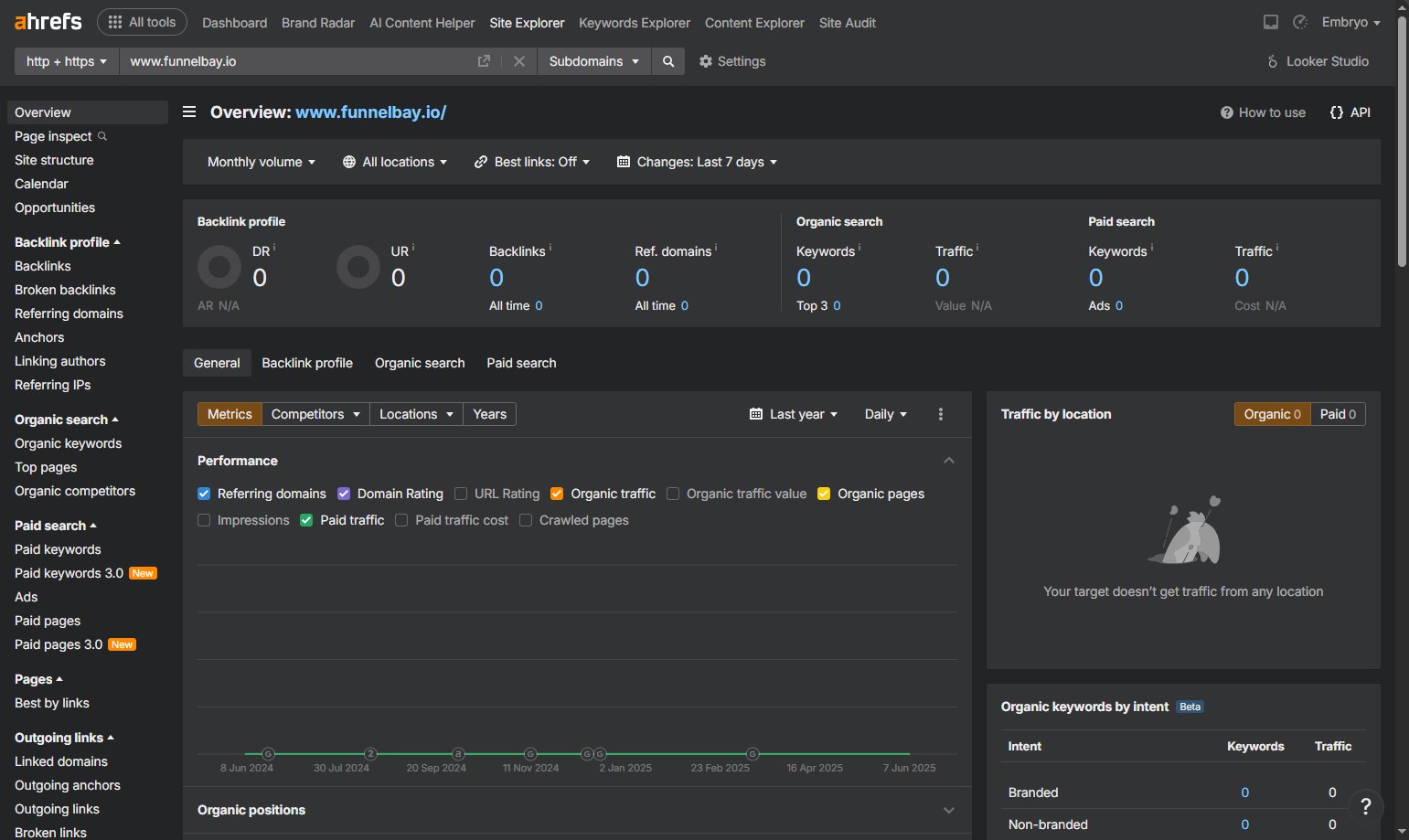Building in Public: The Truth Behind $25k Monthly Claims and Potential Scam
Building in public has become a popular trend among entrepreneurs, but it’s essential to approach such claims with a critical eye. Recently, I connected with an individual who asserted he was making $25k/month. However, upon reviewing his website, I discovered some alarming discrepancies.
His website had a Domain Rating (DR) of 0, no backlinks, and zero SEO traffic. When I inquired about the source of his traffic that supposedly supported his impressive monthly recurring revenue (MRR), he mentioned platforms like Facebook, direct messages, and Reddit.
Curious about his offerings, I asked what he was selling, as his website appeared to be merely a placeholder. There were no pricing details, no sign-up options, and no visible products—just a flashy landing page. He directed me to his newsletter, which contained only two recent posts, lamenting about his daily revenue fluctuations, such as "only made $1.25k today :/". There were no videos or product showcases to validate his claims.
After expressing my concerns about the lack of substantial content, I found that he blocked my on X/Twitter. This experience raised a red flag for me; it felt like he might be fabricating his success, possibly to sell a course or similar product.
Having dealt with various scammers in the crypto space over the years, I’ve learned that tools like Ahrefs can provide valuable insights into the authenticity of online claims. They help reveal the truth behind a website's traffic and credibility.
At the end of the day, it’s crucial to remain vigilant and discerning in the online business landscape. While some may choose to ignore such claims, I believe it’s important to share this information to protect others who might be misled.

Key Takeaways
- •Always verify claims made by entrepreneurs, especially those involving significant revenue figures.
- •Utilize tools like Ahrefs to assess website traffic and credibility before trusting online business assertions.
- •Be cautious of flashy marketing without substantial evidence of product offerings or customer engagement.
- •Engage with community discussions to gain insights into the authenticity of claims in the 'building in public' space.
AI Research Summary
The trend of 'building in public' has gained traction among entrepreneurs, promoting transparency and community engagement as key components of success 12. However, this approach can also lead to misleading claims, as evidenced by the user's experience with an individual boasting significant monthly revenue without any supporting evidence 67. The lack of a credible online presence, such as a website with traffic data or product offerings, raises red flags about the authenticity of such claims 25. Tools like Ahrefs are invaluable for verifying the legitimacy of online assertions, allowing users to analyze website performance and traffic metrics 38. The user's investigation revealed that the individual in question had a Domain Rating of 0, no backlinks, and zero SEO traffic, which starkly contrasted with his claims of earning $25k per month 49. This discrepancy highlights the importance of critical evaluation in the online business landscape, where scams and exaggerated claims can easily mislead potential victims 26. Community discussions, such as those found on platforms like Reddit, further emphasize the challenges faced by entrepreneurs in this space, often leading to skepticism about the authenticity of their peers' claims 4. Ultimately, while building in public can foster trust and engagement, it is essential to remain vigilant and discerning, ensuring that claims are backed by substantial evidence to protect oneself from potential scams 12.
Frequently Asked Questions
Q: What is 'building in public'?
A: 'Building in public' is a trend where entrepreneurs share their journey, including successes and failures, with the community to foster transparency and engagement.
Q: How can I verify online business claims?
A: You can use tools like Ahrefs to analyze website traffic, SEO metrics, and overall credibility to verify claims made by entrepreneurs.
Q: What should I look for to identify potential scams in online business?
A: Look for discrepancies in claims, such as lack of traffic data, product offerings, or credible online presence, which may indicate potential scams.
Related Sources Found by AI
Our AI found 9 relevant sources related to this frustration:
This document discusses the 'building in public' community, encouraging users to share and connect with creators who openly share their entrepreneurial journeys. It relates to the complaint by highlighting the community's focus on transparency, which contrasts with the user's experience of encountering potentially deceptive claims.
This guide outlines the concept of building in public, detailing its benefits such as community formation and brand trust, while also addressing the risks involved. It connects to the user's complaint by providing context on why some entrepreneurs may choose this approach, which can sometimes lead to exaggerated claims about success.
Ahrefs offers tools for analyzing website traffic and SEO metrics, which the user references as a means to verify online claims. This document is relevant to the complaint as it provides the user with a resource to assess the credibility of the individual’s business claims based on their website's performance.
This Reddit post explores the concept of building in public and seeks advice on how to effectively implement this strategy. It relates to the user's complaint by highlighting the challenges and uncertainties faced by entrepreneurs in sharing their journeys, which can lead to skepticism about the authenticity of claims made by others.